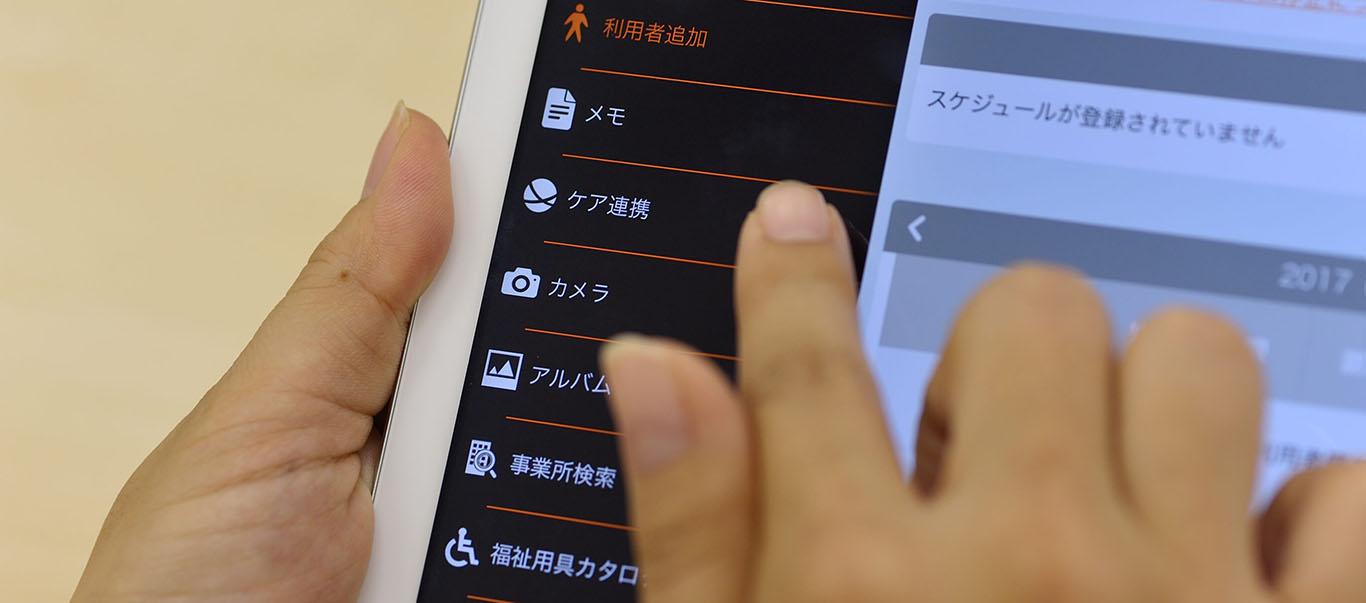A different Definition of Success
Shuhei Morofuji's path, upon graduation, seemed destined to be that of the average salaryman in Japan. But Shuhei wanted something else, a better, different way towards defining his own success.
He had a keen appetite for the study of different business models since childhood, to which in University, he started to create small businesses to learn and to test his ideas. It was this experimental mindset, and his unwillingness to accept the path of an average salaryman, that led him to start his own company at 25.

Identifying promising business fields
Despite his lack of experience in the healthcare industry and its high barriers to entry, Shuhei took the path less taken and sought to improve the situation of Japan’s ageing population - an industry that he identified as a promising business field.
Based on his observation of key fundamental indicators, this segment was primed for long-term growth. The percentage of older people in Japan would only continue to rise and more importantly, this group of people held most of the country’s assets.
Going into traditional healthcare services like retirement villages or aged care facilities, would require a lot of investment, and Shuhei had very limited resources. Thus, he needed to find an asset-light business model that could solve the growing pains of the sector.
Overcoming
his first
Failure
Overcoming his first Failure
Shuhei raised a small round of funding from friends and family to start this business, and he was determined to build a profitable business with this hard-earned capital.
But his first foray into the market did not go well. The business was an online agency that specialised in helping elderly people find accommodation, complete with suitable facilities and available care. But when Japan’s long-term care insurance system came into operation in 2000, competition increased and fees dropped, rendering the business unprofitable.


Failure is incredibly hard to accept in the Japanese culture, but Shuhei remained undaunted.
He soldiered on and began research on the problems faced by the traditional healthcare operators. To which he identified the biggest pain point was in recruitment.
In response, he set-up SMS Co., Ltd, starting with an online recruitment tool to connect hospitals and retirement homes with staff. This business model became profitable in less than 12 months of operations.
Building An Ecosystem
Even with this initial success, Shuhei pressed on, not stopping at just a single product offering.
With profits earned from the online recruitment tool, SMS was able to expand into other B2B and B2C revenue models. It now operates more than 20 web-based services to meet the needs of the elderly healthcare and medical industries, companies supplying it, those working in it and the elderly themselves.
These include platforms that provide healthcare advice from industry professionals to the people caring for elderly relatives. It is also an online community for care workers and managers as well as a healthcare certification platform for those employed in the sector and an education admission referral platform for healthcare training schools.

With 80 per cent of Japan’s numerous elderly-care companies consisting of independent, often family-run, companies, SMS developed a dedicated information management system, which is now used by more than 15,000 operators.
The interconnectivity of the various business models feeds unique data that empowers SMS' big data capabilities, to identify new areas of opportunity and to drive growth. Building an eco-system of profitable businesses, and its ability to be ahead of the curve in identifying new opportunities, is SMS' overarching strategy to build a sustainable company for the next 50 to 100 years.
Making
History:
IPO in 5
Making History: IPO in 5
In bringing SMS from start-up to IPO in just 5 years, Shuhei has established himself as one of the fastest, and also the youngest entrepreneur in Japanese history to do so. SMS was listed on the Tokyo Stock Exchange’s Mothers section for high-growth start-up companies in 2008, at a market cap of over USD 60M and was promoted to the Main board in 2011.
As the populations of other Asian countries continue to age rapidly, SMS is well-positioned to expand outside of its home country, to which Japan now has a 20-year head start on this sector. With the capital raised through the IPO, SMS expanded into China, as well as in the greying nations of South Korea and Taiwan.
Stepping
Aside to Ensure
Sustainability
Stepping Aside to Ensure: Sustainability
Having run SMS for a decade, Shuhei decided the time has come to step aside for the next CEO take the reins. His study of organisational longevity brought the realisation that companies run by their founders over a long period of time, tend to underperform - often becoming vehicles to implement the founder’s will.
In order to develop an organisation that can thrive for 50 or 100 years, it was thus important to nurture talent within the company and provide a progression path for them, to potentially become the next CEO.

Thus in 2014, Shuhei passed the baton on to the next CEO, Natsuki Goto.
Today, Shuhei is the biggest shareholder of SMS Co., Ltd, which provides more than 20 web-based services in the elderly healthcare sector in 13 countries and over 30 revenue streams. The company continues to grow with steady annual increases in its revenue as well as overall market value, even after his resignation - a testament to his philosophy that a company's success should never be pegged to a single person.
Dedicated
to a new
Mission
Dedicated to a new Mission
As part of his new mission, Shuhei has moved to Southeast Asia, as he was drawn by Southeast Asia's long term growth prospects and the complexity of the markets in the region.
He began his research of the market, and started angel investing in 2014 to understand the business landscape and behaviour of entrepreneurs. He saw many untapped business opportunities in Southeast Asia and was encouraged by the eagerness and adaptability of entrepreneurs in the region. He then decided that the best way forward is to build businesses in SEA, at scale.
At 35, he dedicated himself to this new mission. And so began Reapra, a venture builder that invests in self-motivated entrepreneurs who are driven to build sustainable businesses.